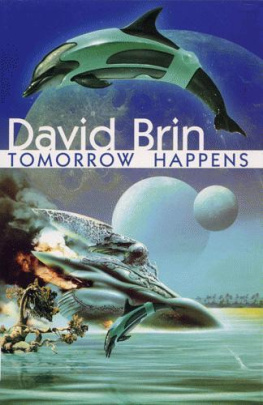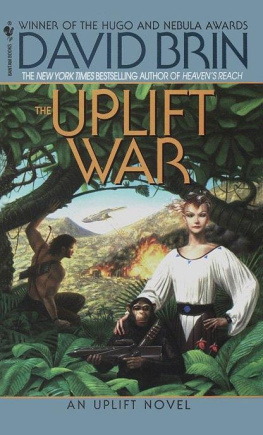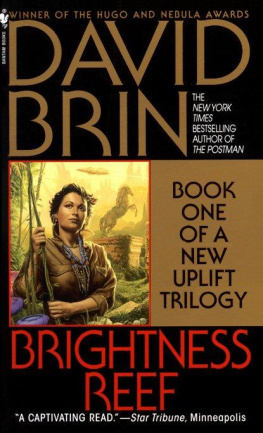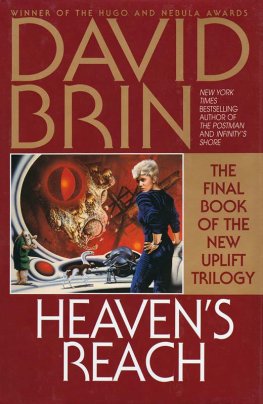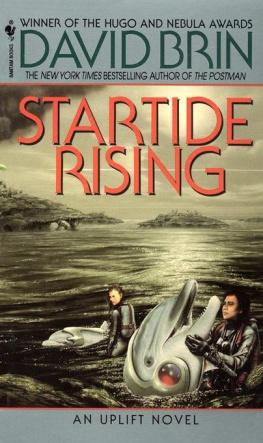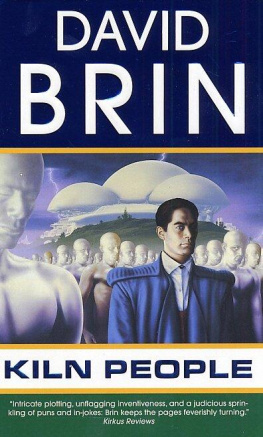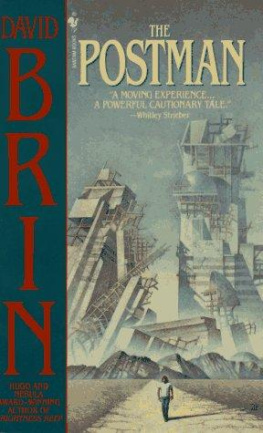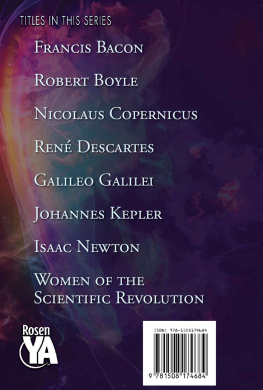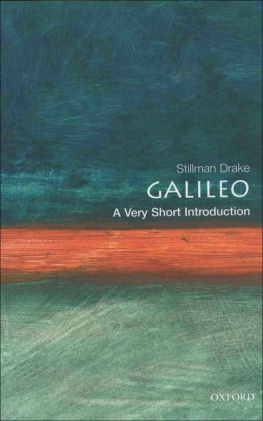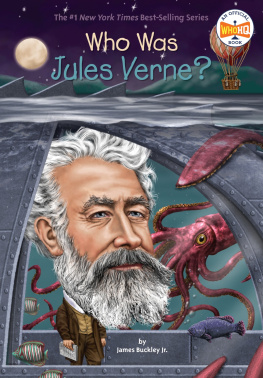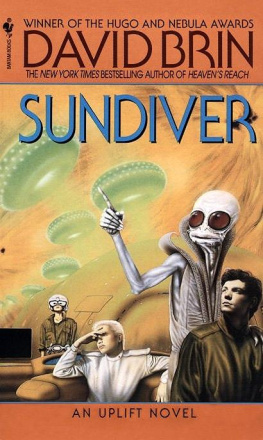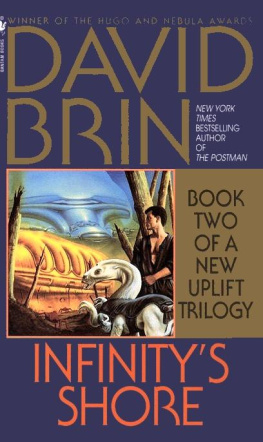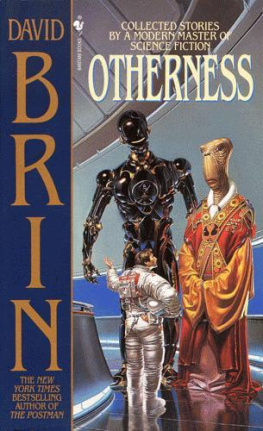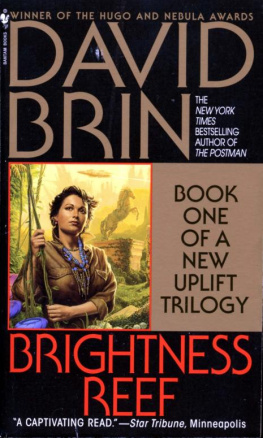David Brin - Tomorrow Happens
Here you can read online David Brin - Tomorrow Happens full text of the book (entire story) in english for free. Download pdf and epub, get meaning, cover and reviews about this ebook. year: 2003, publisher: Nesfa Press, genre: Romance novel. Description of the work, (preface) as well as reviews are available. Best literature library LitArk.com created for fans of good reading and offers a wide selection of genres:
Romance novel
Science fiction
Adventure
Detective
Science
History
Home and family
Prose
Art
Politics
Computer
Non-fiction
Religion
Business
Children
Humor
Choose a favorite category and find really read worthwhile books. Enjoy immersion in the world of imagination, feel the emotions of the characters or learn something new for yourself, make an fascinating discovery.
- Book:Tomorrow Happens
- Author:
- Publisher:Nesfa Press
- Genre:
- Year:2003
- Rating:4 / 5
- Favourites:Add to favourites
- Your mark:
- 80
- 1
- 2
- 3
- 4
- 5
Tomorrow Happens: summary, description and annotation
We offer to read an annotation, description, summary or preface (depends on what the author of the book "Tomorrow Happens" wrote himself). If you haven't found the necessary information about the book — write in the comments, we will try to find it.
Tomorrow Happens — read online for free the complete book (whole text) full work
Below is the text of the book, divided by pages. System saving the place of the last page read, allows you to conveniently read the book "Tomorrow Happens" online for free, without having to search again every time where you left off. Put a bookmark, and you can go to the page where you finished reading at any time.
Font size:
Interval:
Bookmark:
I first met David Brin in 1980. At that time, Sundiver was already published. David was finishing up his Ph.D. at UC San Diego. (My years at UCSD did not overlap his, but David was continuing the grand tradition of science fiction and fantasy writers who were at that university: Greg Benford, Kim Stanley Robinson, Ray Feist, Nancy Holder, David Brin, Vernor Vinge, Suzette Haden Elgin... I leave it to others to determine if this marks UCSD as a special source of sff writers.)
The '70s and '80s were good years for science fiction in San Diego, with lots of writers and fans and frequent parties. I hadn't yet read Sundiver , but David pressed the typescript draft of a new novel into my hands. I politely accepted; I knew that Sundiver was a worthwhile book, so this new manuscript was likely a good story. There was only one problem. I hate novels in manuscript form. I mean I hate to read them in that form. Maybe it's because that's what my own, incomplete, work looks like. Or maybe it's just that typescript manuscripts don't encourage a friendly reader/story relationship. The pages get lost (and sometimes are not even numbered). The homogeneous avalanche of double-spaced text conveys a promise of endless boredom. (But I admit, things are worse if there are lots of markups, or faint ink. And handwritten manuscripts occupy a still lower circle of hell.)
So there I was with this highly legible, but regrettably typescript, novel. It did have a cool title, The Tides of Kithrup . But I was very busy and six weeks went by and I hadn't had a chance to read it. David gave me a polite telephone call, asking if I had had a chance to look at his manuscript. "Well, no," I replied. "I'm sorry! Things have been so busy around here. Look, if you need it back right away, I can send it" David short-circuited this evasion by saying, "Why don't you keep it another couple of weeks? Even if you can't read more than a part of it, I'd like to hear your comments."
Hmm. Okay, a geas had now been laid upon me. But it was a gracious geas that admitted of an easy observance. I could read fifty pages, give some honest comment, and be free once more. Of course, that was fifty pages of typescript manuscript by someone whose work I'd never read before. But hey, I could put up with that for an hour or so, right?
I dutifully set aside an hour and began slogging through the neatly double-spaced typescript... And after a few pages, magic happened. See, the pages became transparent. There was a world to play in. There was an adventure that accelerated me on past page 50, through the whole novel. You probably have read this novel yourself. It was published under the title Startide Rising . It won the Hugo and the Nebula for best science-fiction novel of the year. David went on to complete the Uplift series and later the new Uplift books. Along the way there were many other awards and award nominations. The novels have become a secure part of the sf canon of the twentieth century.
So no one can say that I can't recognize qualityat least if it's hard sf and nova bright. And I doubt if I will ever again look askance at typescript sf from David Brin.
I later learned that David shows his draft work to a number of people. I show my drafts to four or five friends who won't bruise my ego too severely. David shows his to dozens of others. One of his favorite sayings is that "criticism is the most effective antidote for error." He surely lives by that in his writing. In fact, I think it takes a special clarity of mind to avoid the contending "too many cooks" syndrome. I admire someone who can sustain that much criticism, and who also has such openness with his newborn ideas.
In the years since UCSD, David has had various day jobs, including university prof and astronautics consultant. Fortunately for us, his readers, he has not let that get in the way of his writing. We have many Brin novels to enjoy, across a range of lengths and topics. He once he told me his strategy for What to Write Next. He liked to write a long, serious book (perhaps Earth ?) and then something lighthearted and short and fun (such as The Practice Effect ). I'm not sure that David is still following this strategy, since his most recent novel (as of September 2002), Kiln People , is essentially both types of book at the same time.
David Brin's published writing career began with a very successful novel, Sundiver . Initially, I thought of him solely as a novelist. The success of his novelsand his novel seriesmay obscure the fact that all this time he has also been writing short fiction. And the amazing thing is that David Brin often does even better with short fiction than with novels! You'll get to see a few of his short stories in this NESFA volume. Others are available in Brin's published collections (see the bibliography at Al von Ruff's ISFDB: http://www.sfsite.com/isfdb/index.html). David's background in hard science and hard sf shows in these stories, but often in indirect ways, in setting the stage for seriously weird and sometimes disturbing points of view. Some of the stories are fairly transparent, such as the funny and logical and optimistic "Giving Plague." Others, such as "Thor Meets Captain America," are bizarre and effective fantasies. And then there is "Detritus Affected," which builds on simple words to create a reality that is disturbing and mysterious and percolates for days in your mind, until you may finally invent a context and consistency.
I have a friend who is a world-class inventor and engineer, about the closest thing you can get in the real world to the stuff of John W. Campbell's "scientist/engineer hero." This fellow likes science-fiction very much, but recently he made the off-hand assertion that, contrary to what we sf weenies would like to believe, virtually nothing in science-fiction has presaged the contemplation of similar ideas within the scientific and engineering communities. Fighting talk, that. His claim would make an interesting topic for a convention panel, where I think my friend could make a good case for his position. At the same time, it's certainly true that science fiction has caught the imagination of generations of young people and drawn many of them into the sciences. Beyond that, a slightly more imperial claim is reasonable: Many sf writers are voracious skimmers of current science research. Their stories may cross specialty boundaries and act as tripwires to engage the attention of the real doers in the world. And since good stories involve emotions and social context as well as technical ideas, sf writers can have a greater impact than most other commentators.
Over the last twenty years, David Brin has certainly been this kind of inspirer. But in one way, David has gone beyond most of his fellows. He's written many essays about wider issues. Some of these are in this NESFA collection. The bright imagination that we see in his fiction carries over into his essays.
There is a subgenre of Brinnian essay writing that consists of moral criticism of fiction and drama. (See, for instance, the piece about romanticism and fantasy in this book.) This kind of essay may be a surprise to some people. "It's just a story!" they might say of the work that David is criticizing. It also takes a certain courage for a writer to undertake such moral criticism. I write fiction, and I know that sometimes the drama of a story may take it in directions that violate my vision of moral truth. Sometimes I can guide it back, but sometimes I surrender and say to myself, "It's just a fun story." (And at least once, I later ran into a fan who praised me because he found what I disliked to be morally positive !) In any case, even though I don't agree with all of David's moral criticism of stories (for instance, the ending of Bakshi's Wizards is not as purely mean as David says), I find such criticism to be extremely interesting. Like Ayn Rand's heartfelt criticism of Plato and Kant, such essays give an edge to issues that usually seem far removed from everyday concerns.
Font size:
Interval:
Bookmark:
Similar books «Tomorrow Happens»
Look at similar books to Tomorrow Happens. We have selected literature similar in name and meaning in the hope of providing readers with more options to find new, interesting, not yet read works.
Discussion, reviews of the book Tomorrow Happens and just readers' own opinions. Leave your comments, write what you think about the work, its meaning or the main characters. Specify what exactly you liked and what you didn't like, and why you think so.

